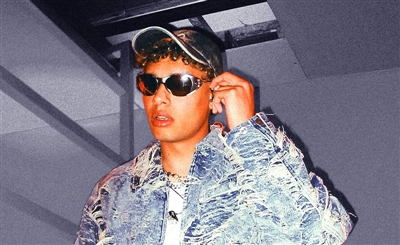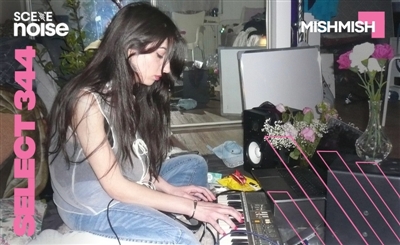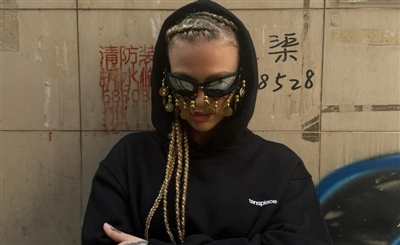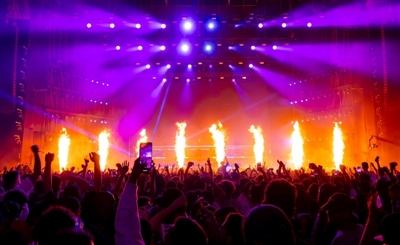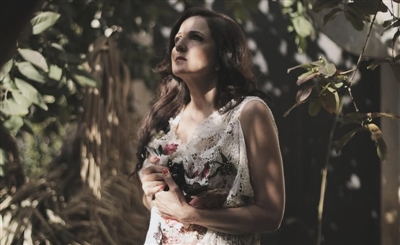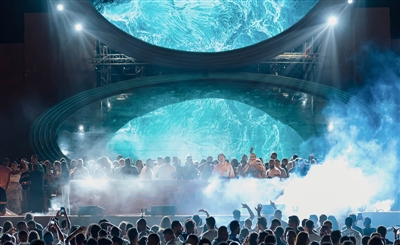Noise 101: Maher Daniel
Palestinian/American DJ and producer Maher Daniel made his Egyptian debut at downtown dance club Zigzag. We caught up with him ahead of his gig for a quick one-on-one chat.
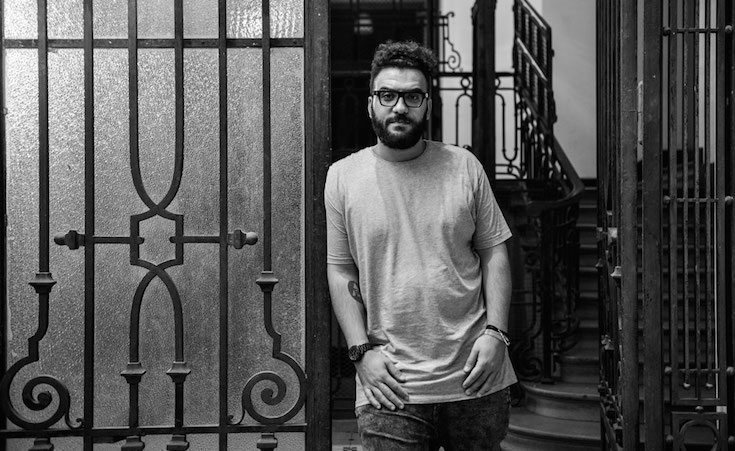
Living his childhood and teen years between Dubai and Montreal, DJ/Producer Maher Daniel combines the best of both worlds. Exposed through production collaborations to the likes of Sultan and Ned Shepard, and playing with some of the world's best DJs - including his personal favourite, Ricardo Villalobos - through his constant gigging, Daniel has a rather large number of successful nights under his belt. In an oriental restaurant in Zamalek, over some shisha and molokheya w roz, we catch up with the Palestinian/American artist.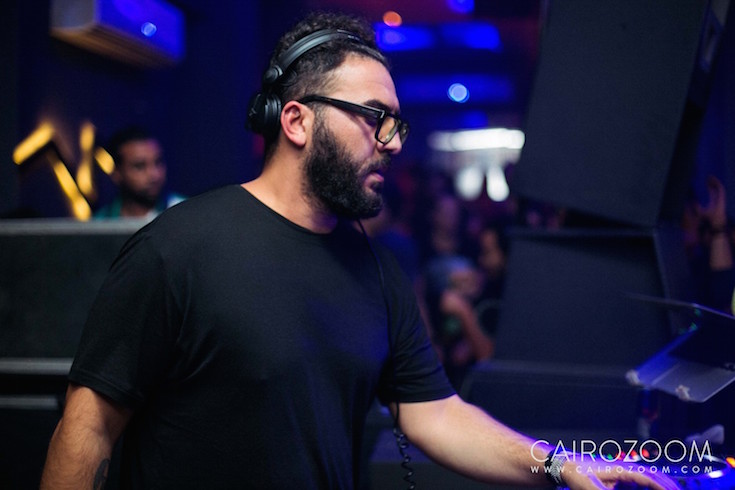 A lot of information is available on the Internet regarding your whereabouts, where you were raised. California-based American DJ, grew up in Dubai, half Indian, amongst other stuff. Tell us, man…
A lot of information is available on the Internet regarding your whereabouts, where you were raised. California-based American DJ, grew up in Dubai, half Indian, amongst other stuff. Tell us, man…
Yeah, for some reason they say California-based, but the reality of things is I was born in the US – I was born in San Francisco. I never really lived there; my parents were on an extended vacation, and they decided to have me in the US. From there I moved back to Dubai where my dad was working, and started shifting between Dubai and Montreal over the years.
So, you were living in Dubai before Montreal?
Yes, well it was always a split. When I was younger I went to primary school in Montreal then moved back to Dubai for high school, then I moved back to Montreal for university and college.
When you were growing up in Dubai, were there any signs of dance music?
No, not at all; it was probably just a twinkle in a foreigner's eye going into Dubai. Then it absolutely blew up into this massive thing it is right now. Every weekend all you hear about in the clubs is a big international DJ coming through. You have the guys from Provocative, New York opening up a club over there – Provocative Dubai. You have the Blue Marlin, and Ibiza in the UAE, where every Friday they’re bringing in some of the biggest DJs in the world. It's crazy to see how much it’s expanded and how much it’s grown over the years. I’m really happy to see that because the culture is really taking it in. Not only the locals, there's a big expat community there too, so for the them, it feels a little bit like home.
Your last showcase in Lebanon at The Gärten by Uberhaus, you brought in Petre Inspirescu from Cadenza…
No, [a:rpia:r]. He’s done records on Cadenza back in the day, but he’s on [a:rpia:r].
Did you guys have to hold back at all while you were playing? Did the crowd accept the music that you guys dished out?
They did, and that’s what was really great about it. The guys from Uberhaus really trusted in me doing this showcase for the label. For them, they’ve always been interested in the Romanian sound – well, I don’t call it the Romanian sound, I just call them the Romanians; they have their unique sound which is this really hypnotic groove, mixed with the more housey stuff. They’ve always wanted to do it, and I was like a gateway to them – I’ve played with the guys before, they trusted me, so I proposed the showcase. Petre had never been to Beirut – actually, none of them had ever been to Lebanon, for them, it was like “let’s give it a try, we’re going with you, we can trust you with this.” The crowd was welcoming with open arms. It was such an amazing night, so refreshing to see that Beirut is ready for something like this.
Stereo Montreal is one of the hottest clubs in North America. Tell us a bit about your job at Stereo, your work week, and what is the single most important aspect in maintaining your health in such an environment?
Stereo is way behind me; I used to be the head booker for five years. It was challenging because it was a brand new thing for me, I had never done it before. The owners really trusted in me – they liked my style of music, too. The work week was constantly being at the office, getting bookings done, scheduling months in advance, and on the weekends I'd be in the club hosting, either opening or closing for the main act. Maintaining my health and normal life – honestly, it was just one of those things where I would try to balance myself by trying to go to the gym as much as I can, trying to produce music as much as I can. So music was like nonstop 24 hours, seven days a week for me. So now it’s a work ethic I maintain with what I'm doing now – running my own label, DJing, always on the road, and being in the studio.
So 'The Other Side' is a label?
Yeah, it launches at the end of November. It’s a four-part series for the first release – two singles from my album and then a full remix package, so that's November, December, January, and February. We’re doing the event showcases as well; the first one was SX Festival at St. Martin with Priku, the second one was in Beirut, and the third one is in Istanbul with Shaun Reeves and Priku again. It’s also a passion project because what I’m doing with the label is a charity-based event – 15 percent from the label, 15 percent from the artwork once we sell it off, and 15 percent from all the shows that we do go to building recreation centres in conflict areas for youth to learn how to make music and art. Let them forget about their surroundings and all the bullshit that's happening. As a Palestinian, I see the kind of mentality that is put out sometimes and it's always about the religion, and that you're different from who I am. So if music and art can bring people together I think it's really important that someone tries to push it that way – thats why I'm doing it. I’m working with an amazing artist from Chicago – his name is Wesley Kimler, he’s kind of on the same boat as I am, and he’s super passionate about it. His art reflects these conflicts that are happening. Your favourite DJ is Ricardo Villalobos?
Your favourite DJ is Ricardo Villalobos?
Yeah.
How did it feel stepping up behind the same decks as him?
He’s such an incredible DJ, and such a genius whether in the studio or on the decks. You kind of start questioning yourself – “Uhh, what am I going to play?” or “What am I going to do to make it impressive?” It was always about trying to impress the guy. I think what was even scarier that night is the simple fact that I had to close after him. He was like, “umm I can’t continue right now, do you want to play?” Following a guy like that that was even more intimidating.
Would you be able to name a couple of your favourite labels right now?
Uvar is one of them, Sepp’s label. Ada Kaleh, Romania is a great label. There is Howel out of Strasburg, Hostom, Brouqade which is Dana Ruh’s label. Obviously [a:rpia:r] is such an inspiring label as well, and Mule Music. Those are some of the labels off the top of my head that get me going whenever they release stuff, because you never know what you're going to get, but it’s always quality music.
Describe your music in a few words – a short sentence.
I would say hypnotic, groovy, and house-y.If you were asked to prescribe one track for someone who has never listened to dance music before to start off with, which track would you pick?
That’s a really hard question! I really have no idea, but I would say Ricardo Villalobos - 808 The Bass Queen. It’s really beautiful, but also really trippy, minimal, and hypnotic. It could either click with someone or they might be like “but when is it going to kick in?” I mean at least that for me thats what I would do.
What are a couple of tracks or collaborations that you are excited about with your new album?
One of them that I’m really proud of is this one record called La Sistema De Revolucion. I took a Noble Laureates speech that’s talking about the whole revolution that happened in Latin America – he talks about Pinochet and Chile. There's a whole speech that goes through but the groove of the record has that Latin flavour and is minimal-esque – a record that is kind of Ricardo [Villalobos] inspired. He was the inspiration behind it when I wrote it. Ada Kaleh delivered such an incredible remix for me. Another one is a downtempo/electronica record that I did featuring Adeline from Sweden, which is a super beautiful, really nice housey vocal. Motionless is another one that's very trippy, very hypnotic, with a Mandar remix that's coming up. The whole album is just different soundscape from start to finish; it builds up nicely.
Can music play a role in politics? In other words, can music help in solving political turmoil?
When you're under one roof and you are listening to something you enjoy, race, religion, sexuality – no matter what you are as a person – it never gets mixed up, it never gets involved, and there is no sense of politics. There is nothing in there. It unifies people; it brings people together, so I think there is a huge potential for music to bring people together and forget about the bullshit that’s going on in the world. The youth, our generation that’s living now, is way more tolerable and accepting to all this stuff, so I think it really needs to happen.
Follow Maher Daniel on Facebook here and follow him on Soundcloud for more tunes.
Photography by @MO4Network's #MO4Productions.
Photographed by Ahmed Najeeb and Shortcake.
- Previous Article Getting Abyusif
- Next Article DGTL: Much More than a Music Festival
Trending This Month
-
Jul 07, 2025
-
Jun 18, 2025



